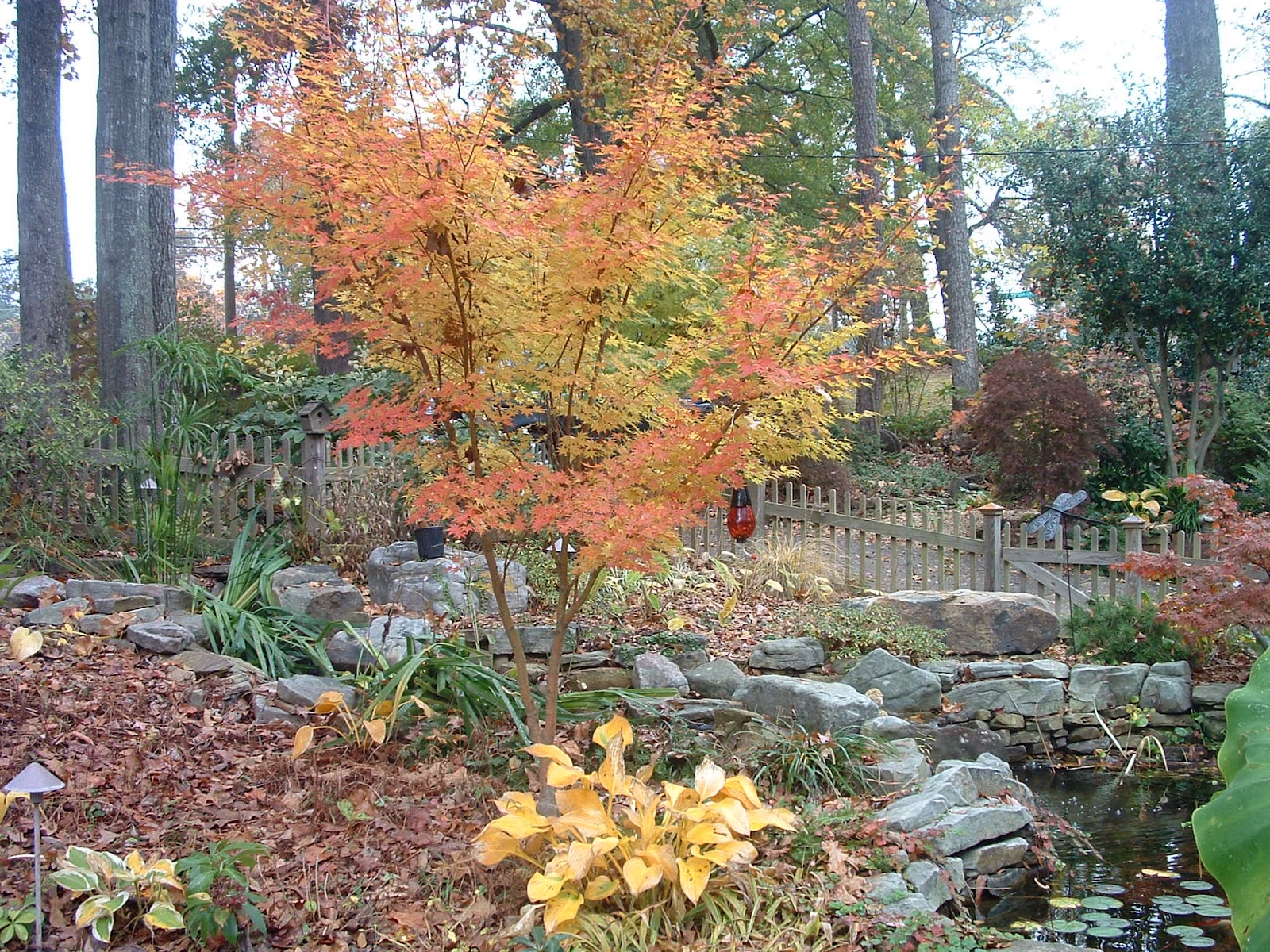
MOSAIC Guest Blogger: Mary Kay Woodworth, executive director, Georgia Urban Ag Council, www.urbanagcouncil.com
It’s great to live in Georgia, where the climate is conducive to enjoying the outdoors 12 months a year. But if you’re like me, I’m ready for cool nights and not-so-hot and humid daytime temperatures! As both an avid gardener and someone who professionally spends a lot of time with landscape pros, I can attest that once September arrives, we all breathe a collective sigh of relief when we step outside in the morning and can “feel” fall in the air! The forecast for the next few weeks confirms that we’re almost there, so here are some suggestions for your fall landscape endeavors.
Flowers: Cut back annuals and fall-blooming perennials now for continued blooms, but wait until mid-October to plant winter annuals (violas, pansies, snapdragons, ornamental kale, etc.). Fall’s a great time to plant, move and divide perennials, and take care not to plant them deeper than they originally grew. Mulch and don’t forget to water them in. If you’re the patient type, purchase fall bulbs now for planting in November. These bulbs will yield bright colors in the spring: anemone, daffodil, dahlia, gladiolus, hyacinth, narcissus, ranunculus and tulips. Use a bulb-booster fertilizer when planting.
Turf: If you’ve got fescue that needs reseeding – or want to plant fescue – don’t wait until spring. Fescue seed can be planted from mid-September through mid-October; if you’ve got weeds, kill them with a non-selective herbicide (such as Round-Up or Finale) and plant in 7-10 days. Don’t forget to fertilize – apply a starter fertilizer if you have just planted seed, otherwise use a fertilizer recommended for established fescue lawns. Bermuda turf can be fertilized in late September with a winterizer fertilizer, but wait until next spring for all other warm season grasses.
Winter Weeds in Turf: To prevent winter weeds (such as chickweed and henbit) in established lawns, apply a pre-emergent weed preventer between Sept. 15 and Oct. 1. If you’re reseeding or planting fescue, do not apply a pre-emergent weed killer.
Maintenance: As temperatures drop, your landscape needs less water, so watch the forecast and adjust your watering schedule based on rainfall. Make sure that newly seeded lawns receive enough water so that the soil remains damp, and be sure to remove fallen leaves from the newly seeded lawn. Lightly rake them off or use a leaf-blower to gently push them off the grass. Now’s not the time for heavy pruning – wait until cooler weather arrives. You can remove dead limbs from trees and woody ornamentals, and make sure to rake out fallen leaves and other garden debris to prevent pest and insect problems.
Mulch: Mulch is the little-noticed workhorse of many a smart gardener’s landscape. Mulch is a protective covering—organic or inorganic—place in a wide circle around plants to prevent moisture evaporation, root freezing and weed growth. Whether it’s pinestraw, pine bark, cypress mulch or other organic material, applying mulch can reduce evaporation by as much as 30 percent.
Planting: Fall is the best time for planting many ornamental plants in Georgia. When planted in fall, the plant becomes happily dormant above ground soon after planting, but the roots continue to grow and have several months to become comfortable and strong in its new home. When spring does arrive, the plant is established and ready to put out strong leaves, new top growth, and lots of flowers. Wait until spring to plant, and the shrub or tree must acclimate itself to its new home and begin growing immediately. At the same time, it has to produce leaves, flowers, and then endure the rapidly arriving summer heat. So the difference is obvious: fall planting gives your plants roots a wonderful “head start” over spring planting.
In my opinion, you can’t go wrong if you consult the Georgia Gold Medal plant list. Each year, the Georgia Gold Medal Plant Committee selects flowers, shrubs, trees, groundcovers and vines that are well-adapted throughout most of Georgia, readily available and provide seasonal interest. An added bonus is that all are low maintenance once established!
2012 Georgia Gold Medal Winners:
-
Rabbiteye Blueberry (Vaccinium virgatum (ashei)) – Not only do you get tasty fruit with blueberries, but spring blooms and fall color.
- Coral Bark Maple (Acer palmatum ‘Sango-kaku’) – This small, finely-textured landscape tree is useful in a woodland edge, as a specimen tree or in a shrub border and is known for its red branches.
- Athens Sweetshrub (Calycanthus floridus ‘Athens’) – A native shrub that works well for screening, plus adds a fruit-scented fragrance in April.
Georgia Gold Medal plants are proven performers for Georgia gardens. There are now close to 100 Georgia Gold Medal winners, creating a large palette of plants for homeowners to feel comfortable using in their home landscape.
Find out more about Georgia Gold Medal plants at www.georgiagoldmedalplants.com. Enjoy fall!
